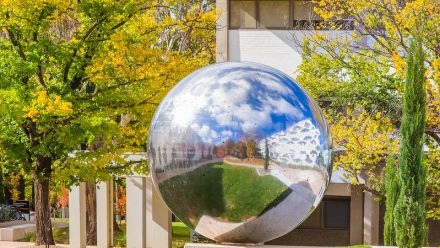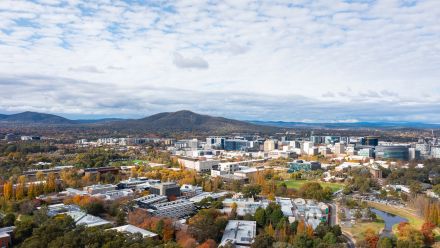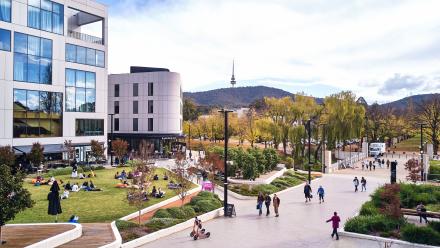Helping bring democracy to the Pacific
Then - Writing the constitutions of the Pacific
Research that would drive Australia's engagement and understanding of its neighbours was a defining vision in the establishment of ANU in 1946.
Since its early days, the University has advanced the world's understanding of the histories, geography, politics, people, societies, cultures and languages of the Asia Pacific region.
ANU Asia-Pacific research is recognised around the world for its unrivalled breadth and depth covering a geographical range from Polynesia in the east to Pakistan in the west and from Australia in the south to Mongolia in the north.
Yet for several small island nations of the Pacific, ANU research has played a far more important local role in helping develop their own democratic constitutions and governance structures.
In 1949, Professor of Pacific History Jim Davidson accepted the foundation chair of Pacific history in the newly established Research School of Pacific Studies. His work would go on to be recognised as central to the advancement of Pacific studies around the world.
A champion of political advancement for all Pacific Islanders, he was involved in advising Samoa on constitutional matters and later drafting constitutions for the Cook Islands (from 1963), Nauru (from 1967), Micronesia (from 1969) and, shortly before his death in 1973, Papua New Guinea.
His influential work would later continue through the work of ANU historian and Fijian native, Professor Brij Lal.
Lal was a member of the Fiji Constitution Review Commission set up to review Fiji's 1990 constitution - a discriminatory piece o legislation enacted in the aftermath of a 1987 coup that rejected multiracialism in favour of Fijian dominance.
His deep personal connection and understanding of the country's complex ethnic historical and political legacies helped Professor Lal, along with other committee members, devise a constitution that considered the need for national harmony and respect for the rights of all communities.
The report titled The Fiji Islands: Towards a United Future recommended multi-ethnic societies aspire to multi-ethnic governments and for Fiji to move away from the preoccupation with race. It suggested the nominal head of state should be an Indigenous person and included progressive human rights provisions and equal rights for women, gay and transgender people.
When the Fijian parliament enacted the new constitution in 1997, it not only installed a sense of renewed optimism in the island community but was widely praised around the world.
For his efforts, Professor Lal was made an Officer of the Order of Fiji and the Fiji Millennium Committee named him one of 75 people who helped shape the 20th century history of Fiji. In 2015, he was made a Member of the Order of Australia for his contribution to the promotion of Pacific scholarship.
Now - Finding Myanmar's place in the Asian Century
Emerging from more than five decades of military rule, Myanmar is experiencing a major shift in the way it is governed as dictatorial controls ease across the nation.
"After its first democratic election in a quarter century, Myanmar is opening up at a mind-boggling rate," says Dr Nicholas Farrelly, Director of the ANU Myanmar Research Centre and a Fellow in the Coral Bell School of Asia Pacific Affairs.
Home to one of the largest concentrations of Myanmar specialists in the world, ANU has been teaching and preparing the next generation of Myanmar's leaders, readying them to help the country take its place in the Asian Century.
"In Australia, we sometimes like to pretend that, in this Asian century, we are in the thick of the action," says Farrelly.
"Of course we can play an important role, but nothing like the sort of role that Myanmar is now confronted with."
Farrelly's work with the ANU Myanmar Research Centre supports people and institutions in Myanmar trying to take advantage of the new economic and political conditions.
"It is important we recognise this quite incredible opportunity and we do our best to support improved capacity of a range of institutions in Myanmar, including local universities. Ultimately, it's the people of Myanmar who will take the country forward," he says.
"Since 2012 we have been training a stellar cohort of Myanmar leaders who will end up driving the next phase of reform - it's superb that ANU can be so heavily involved in this way."


